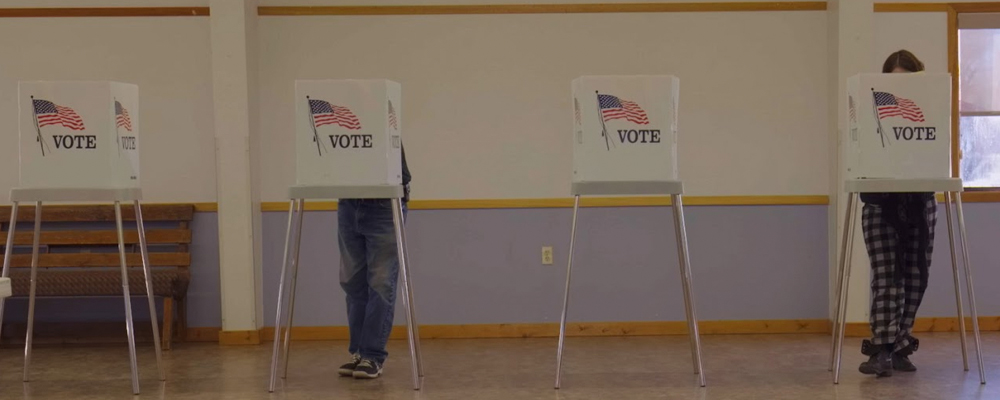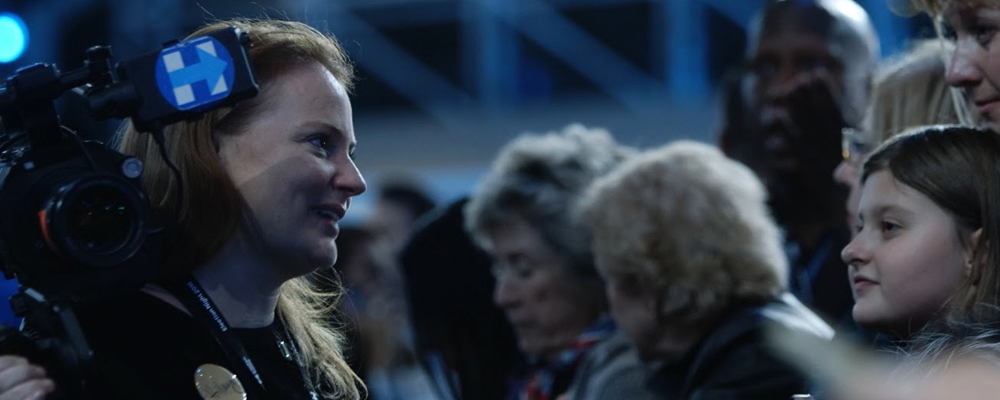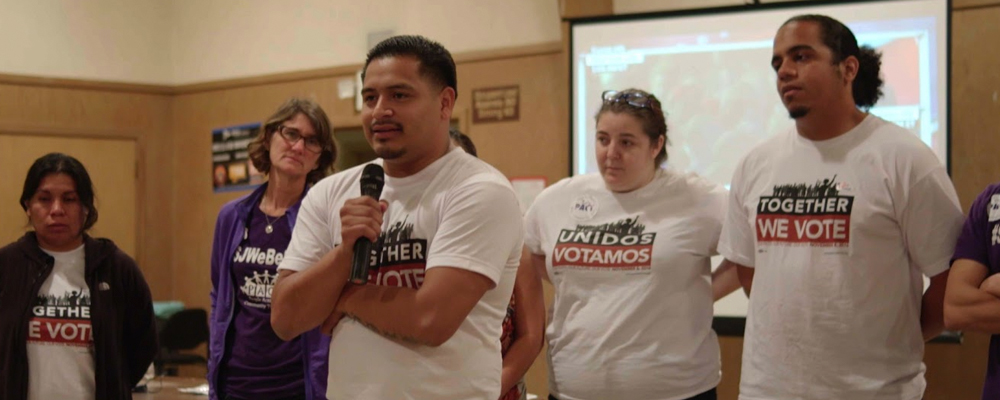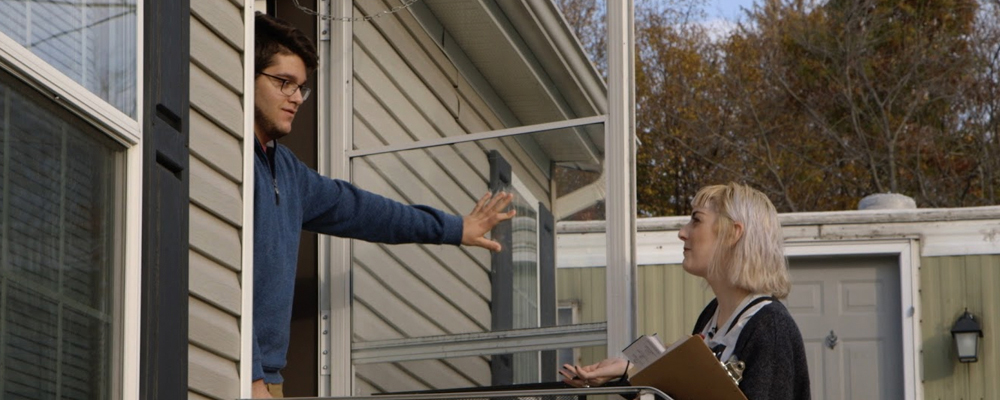Election Day Documentary ’11/8/16′ Depicts the Vast Polarization Across America
Aaron Berke
November 8, 2016 was a day that broke the illusion of America’s unity. Barack Obama was still the President, and Hillary Clinton was considered the front runner by a vast majority of Americans. The Republican nominee, Donald J. Trump, stood no chance of winning. Not even his most ardent supporters thought he was going to win – for the most part. But as Election Day 2016 wore on, the shape of things to come radically shifted, and so did the perspective of the people who voted. Their worries, their fears, their excitement – it all shifted dramatically thanks to the result of that fateful election.
The goal of the documentary film “11/8/16” was to capture exactly that shift, and the circumstances that spawned it. Curator and producer Jeff Deutchman sought to compile perspectives from Americans spread all over the country. New York. Alabama. Virgina. Massachusetts. California. New Mexico. Hawaii. Filmmakers followed subjects from all around the U.S., and captured their very different feelings about the best candidate for President. The film follows many Clinton supporters, and an equal amount of Trump supporters. There’s even the odd Even McMullin supporter, and a Hawaiian couple who have never voted, and have no idea who the candidates are.
What emerges is a view of the vast polarization that’s swept the country, and has only grown since that fateful day in 2016. Entertainment Voice had the chance to sit down with Deutchman in New York City, and he elaborated on his intentions for the film. “I really wanted to make this a relatively diverse portrait of the country,” Deutchman said. “It was always part of the process and the strategy to have more filmmakers than would end up in the film. So we started with 50 [filmmakers] and I worked with each one of those filmmakers to find [subjects] who would be interesting.”
Given the sheer number of filmmakers and subjects involved in the shooting of the film, it’s easy to imagine that Deutchman could have cut the film a number of different ways, creating many distinctive narratives. For Deutchman, the process was about finding a narrative that could reflect the mood of the country at that time.
“The first thing I knew, once Donald Trump won, before I even saw the footage, was that the overarching structure of this movie was very likely to be the story of denial turning into shock,” said Deutchman. “Once I saw the footage that was confirmed, because everyone I have footage of was convinced Hillary Clinton was gonna win, including Trump supporters.”
Within the footage, Deutchman selected moments that could accurately hit on important questions. As he peered through the footage, Deutchman began to discover numerous moments where subjects portrayed utter shock about the decisions of their fellow Americans. One such moment is a quote from a black man named Anthony Ray, who was on death row in Alabama before being exonerated, and who voted in the 2016 election for the first time in 30 years. Deutchman paraphrased Ray’s quote, in which Ray described his views of white people. “[Ray said] Black folks, we look at white folks every day and ask ourselves how can someone be the way that you are?’” Deutchman quoted. “For me that line very poetically crystallized what I was observing in a lot of the footage, which was that everyone was just [thinking] ‘how could anyone possibly believe X?’”
Deutchman went on to describe how this lack of understanding exceeded boundaries of race, gender, cultural, or political affiliation. Incredulous liberals and staunch conservatives essentially believed the same thing of each other – that the other’s views are totally preposterous. “You have a lot of people basically saying ‘I can’t even put myself in the shoes of my fellow Americans. I can’t even understand where they’re coming from,” Deutchman described. “That failure of empathy became a central theme for the movie that I tried to organize things around.”
One of the fascinating elements of the film becomes the apparent effect of watching two totally separate people discussing the same subject matter. Through editing, the film almost takes on a quality in which the subjects, though separated by time and space, are having a conversation with each other. One such moment is when a young woman named Denise is speaking to her father on the phone. The father believes that America is already great, while Denise believes America is full of racist, sexist bigots. The film then cut to Anthony, who discusses racism, and essentially holds the same opinion as Denise. In essence, they’re reaching an agreement on the same topic, at least in filmic terms.
Deutchman interprets this conversational effect as incidental, but more or less agrees that the moments are there. “We tried to avoid anything that resembled too much of an inter-location conversation, because ultimately these people were not in the same room together… We tried not to do anything too reliant on those connections. But of course, you have to make connections,” Deutchman admitted.
“For those [scenes with Denise and Anthony], they were the two scenes where people state the ideas I thought were the most salient. So if you think about the movie as a symphony, those two need to be together because they are the most important moments, and that happens I think at the end of the second act,” said Deutchman. “So for me it was more of an emotional structure rather than a direct conversation between those two moments. But it’s an interesting idea to think about how [Denise’s idea and Anthony’s idea] speak to one another.”
Deutchman then discussed how there were instances in which he and the film’s editors, Jon Lefkovitz and Martha Shane, deliberately left things more open-ended, so as to avoid specific conversations about certain issues. One such issue that the movie chose to deal with more subtly was about how racial divides can affect personal interpretation of the election. “There’s a moment when Dave Davies, the reporter for WHYY Philadelphia, expresses how shocked he is around the time that Trump is winning,” said Deutchman. “[Dave] says ‘I can’t believe this is happening. And then right around the same time in the movie, Anthony Ray says, ‘I’m not shocked.’”
“We had the option of putting those things right next to each other, which would have created a sense that we were trying to say something about the way in which perhaps white people and black people experience the election in slightly different ways. There was more shock amongst liberal white people [about Trump’s victory],” Deutchman noted. “And [my editor and I] thought putting those two [moments] directly next to each other would have made that point [about race] a little too strenuously. It’s still there if you wanna get it. But there’s [a segment] in between [David’s and Anthony’s scenes] in the film that allows that point to be a little more subtle.”
“11/8/16” necessarily navigates racial, religious, gender, cultural and political divides. It’s something of a challenge for a film of this nature to remain impartial, particularly when dealing with such a binary topic like “Clinton or Trump.” The film nevertheless does an admirable job at depicting the election outcome impartially, giving mostly equal weight to pro-Hillary and pro-Trump supporters. That being said, there’s definitely a slant in a certain direction that begins to emerge as the film heads into its final act. But for Deutchman, an emerging direction is part of the process when creating a film — even a documentary. Deutchman, indeed, believes total impartiality is impossible.
“I don’t really believe in impartially. I don’t think it’s possible as a fillmmaker to make something that doesn’t contain my inevitable biases,” Deutchman said plainly. “When people say they’re unbiased I think that’s usually deceptive. Having said that, I will say that I did not intend this movie to be about why Donald Trump is bad for this country. I believe that he is. But that’s just not what this movie is about.”
Deutchman stressed that, despite his lack of support for Trump, he didn’t want that particular bias to fuel the movie. “There are other questions that I was pursuing, and I bring my biases to those questions, I would never claim that I don’t. Because the questions are not the obvious questions, it allows, I think, more room for different types of people with different ideas to see this movie and then bring their own biases to the table and come up with their own take-aways.”
Despite Deutchman’s delicate balancing act in regards to Donald Trump, one thing becomes increasingly clear as the various reactions to his win come into play: The people who are happy about Trump’s win have much less to lose than those people who are not happy about his win.
“That’s one thing that I hope is an unavoidable take away from watching this movie, is that there’s a disparity of stakes.” Deutchman said. He went on to mention one of the subjects, Tom from Massachusetts, who is a Trump supporter, and who literally states that the election is not going to affect his life significantly. After Trump’s win, Tom gets up from his couch, pleased with the result, and admits that the next day will be just another day at work. He hopes that the election result will shift his life for the better, but isn’t too worried about it one way or the other.
This is the kind of moment Deutchman wanted to contrast with the despair felt by other people, such as those in the immigrant community. “When you see those moments [with Tom] juxtaposed against the Dreamers in San Jose who are at risk of being deported and having their families broken up, my hope is that – without having to state that explicitly in the movie, without having to put words in anyone else’s mouth, but just allowing these people to speak in their own words – that that point [about the disparity of stakes] comes across no matter who you are.”
The collective impact of the movie is one of harsh reality. It’s one of coming to grips with just how polarized America is, and how much work we have as Americans to come together as one. For Deutchman, it’s about illuminating how that vast polarity represents America’s greatest strengths and also its greatest weaknesses.
“I guess my thesis is that this country, the American experiment, is unlike any other country’s experiment in that it contains such multitudes,” Deutchman explained. “[Having 16 main characters in the film is] trying to recreate the mosaic that represents this crazy mix of opinions that exist in this country. That diversity, those multitudes I believe are the source of many of our strengths and also many of our weaknesses. And so where does that net out?”
Perhaps the most important question hovering over “11/8/16” is one that we’ll never know the answer to: How would the movie have been put together differently if Hillary Clinton had won the election? What would that movie have been about?
Deutchman’s answer might take a lot people by surprise. “It’s funny, I’ve been thinking about this recently. If Hillary Clinton had won, I don’t know what that movie would have been. But I’ve begun to suspect it’s possible that I would have made a very similar movie,” Deutchman said thoughtfully.
“Because — unless we’re imagining a wildly different scenario — but if we’re imagining a scenario where Hillary eked out a victory, if [the election] had gone the other way and Hillary had won but Trump had still gotten something like 60 million votes, I think I would’ve had a lot of the same questions,” said Deutchman. “[Questions like] how could we have come that close to electing Donald Trump? So I think I would have been interested in a lot of the same themes.”
Though we’ll never see the movie Deutchman hypothesized, it’s certainly interesting to think about what might have been. In the meantime, “11/8/16” is a fascinating experiment, one that continues to be relevant. The issues highlighted in the film persist to this day, and in many cases have grown even more divisive. There are no easy solutions to be found in America today. But one thing is certain: As America’s cultural and political landscape continues to shift, “11/8/16” will remain a worthwhile film to dissect in the months and years to come.
“11/8/16” opens Nov. 10 in select cities.




